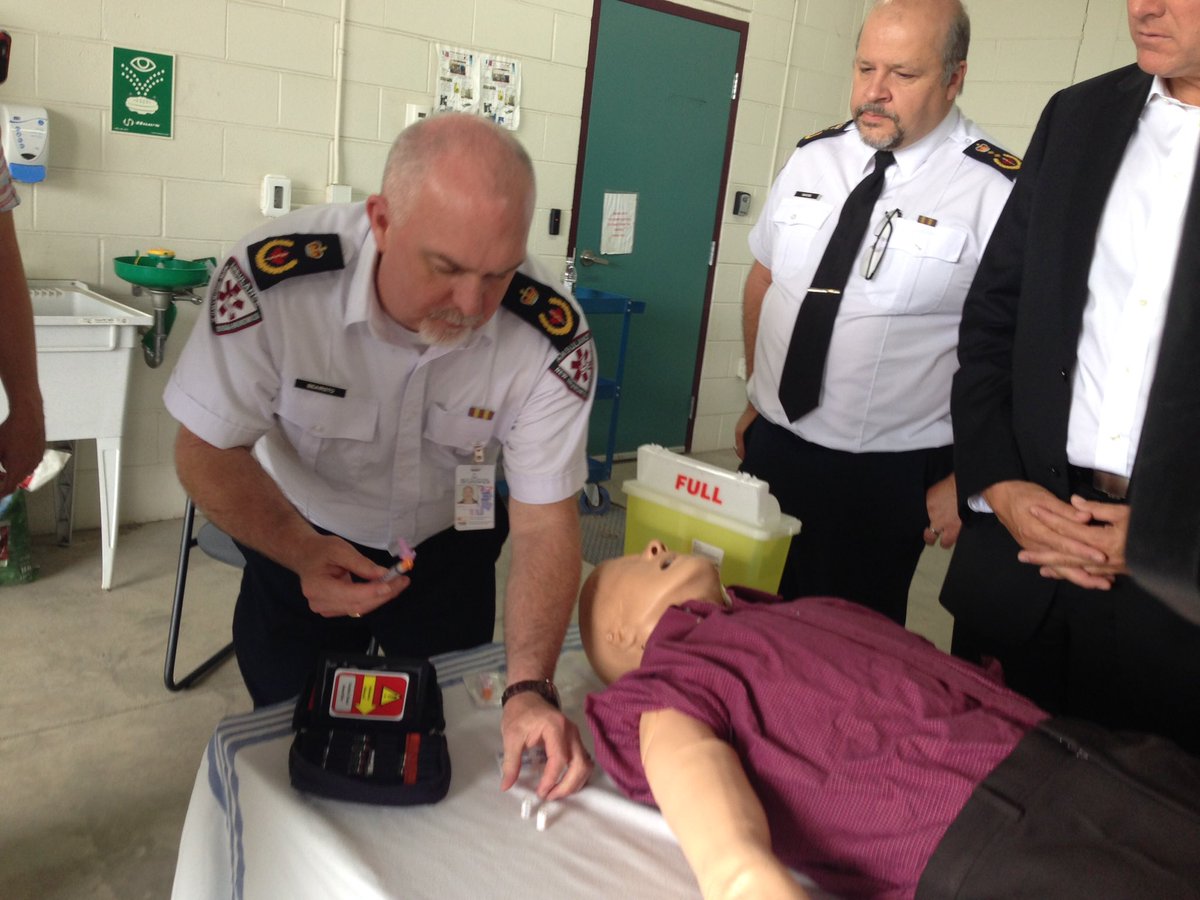New Brunswick’s task group on opioids says the province has one of the lowest rates of fentanyl in the country, but health officials say it’s important to be prepared if the situation worsens.

An interdepartmental task group on opioids is working with its partners, including first responders, to address issues surrounding the fentanyl crisis.
The province’s acting chief medical officer of health Dr. Jennifer Russell told reporters Wednesday there have been 31 opioid-related deaths in the province, with four of them related to fentanyl.
READ MORE: Fentanyl fears prompt more Moncton volunteers to clean up discarded needles
“Yes, in many areas of Canada, we are currently experiencing an opioid public health crisis and the issue is extremely serious,” Russell said.
“But as the most recent data shows us, New Brunswick is currently experiencing among the lowest levels of opioid-related deaths in the country, but these numbers don’t mean that the work that’s underway is not important, on the contrary it affords us the opportunity to prepare ourselves for a situation which might worsen over time”

Get weekly health news
The task group’s mandate is to provide expertise in the development of plans for the prevention, monitoring, preparedness and response to opioids, including fentanyl in New Brunswick.
Health Minister Victor Boudreau said the task group is also looking to accessibility to the antidote naloxone.
“As part of the work on treatment interventions, the provincial government is studying options for making naloxone available free of charge to vulnerable populations in New Brunswick, and I look forward to being able to provide more details on this in the coming months,” Boudreau said.
READ MORE: More than one person dies every day from drug overdose: Vancouver Police
The task group also focuses key areas including surveillance and monitoring, resources, education, treatment interventions and awareness and assessment. It’s also looking into what personal protective equipment first responders require to stay safe if exposed to fentanyl and public communications.
Boudreau says the dangers of opioids are real and already present in the province. He said many first responders are already carrying Naloxone kits.
Naxolone is available in a nasal spray and as an injection and can stop and reverse an opioid overdose. The half-life of the drug is short and anyone who is administered the drug requires further medical attention.
Fredericton Police Force Deputy Chief Martin Gaudet said the force, along with members of the Fredericton Fire Department gave a presentation on operational readiness on their naloxone program to council on Monday.
“As you know fentanyl is an opioid, it’s a substitute, a heroin substitute,” Gaudet said. He said that according to literature it can be 50 to 100 times more potent than morphine and comes in the form of pills, powder, and patches.
Gaudet said the force wants to purchase 48 more kits to the tune of about $6,000.
“We have already found the initial money within our operational lines, we hope to find the additional $6,000 within our operational lines and we’re working with finance to get that done,” Gaudet said.
He said best practices is that officers carry naloxone so when they go into a situation where fentanyl might be present, they can give themselves a dose of nalxone and then safely be able to provide the victim with a dose while they wait for emergency medical teams to arrive.
Gaudet said they haven’t had to administer Naloxone in their jurisdiction yet, but did confirm that fentanyl is present in street level drugs in Fredericton.
He said that highlights the need to provide equipment to officers to help keep them, and the public safe.








Comments